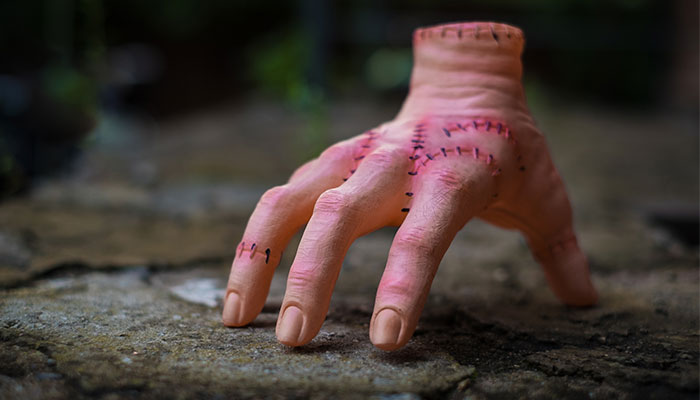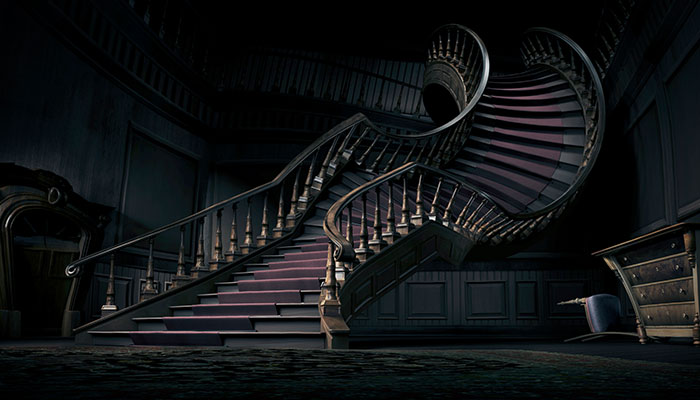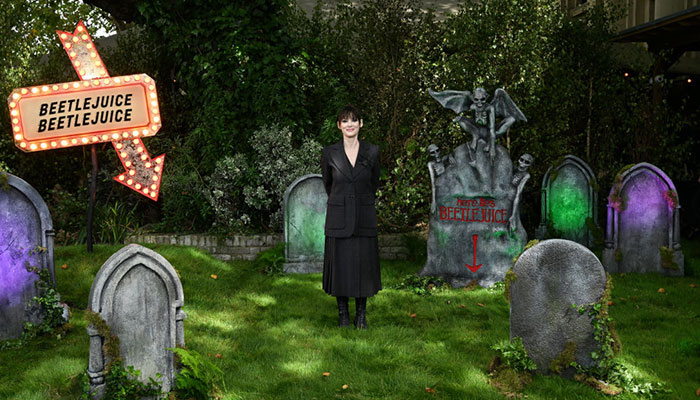Opinion: Book lovers and film goers have long been seduced by horror stories, by all things spooky, freaky and supernatural.

That's because Gothic horror taps into something primal. It preys on fear and the presence or threat of death, on that sense of the past returning to haunt the present. In Gothic horror stories something is buried or repressed: secrets are unearthed.
Horror is a genre of speculative fiction that is intended to disturb, frighten, or scare.
Why do we enjoy being in the grip of fear?
On one hand, it is because of our fascination with the unknown, with what happens after death, with the precariousness of our own lives. Ghosts, monsters, goblins or ghouls – all dead – remind us that our lives are short.
But on the other hand, we bend to the will of imagination, that sense of What if this could really happen? What if there were werewolves, vampires, sirens and gorgons in the 'hood?
Laughing at horror
When we think of horror, we mostly think of the fear-based type, but there's actually another strand to the genre that takes these familiar elements and has fun with them. Horror comedy is still "horror" – it's got all the recognisable monsters and mayhem – but it's also absurd and its primary goal is to make us laugh as it does in The Addams Family, What We Do in the Shadows and even Ghostbusters.
The iconography of horror is now so familiar to us. Think how global Hallowe'en has become, and haunted house carnival rides. Both are associated with the gory, the grotesque, the supernatural, but also with enjoyment. When things become familiar you can start having fun with them.
The Gothic horror thread reaches back to Horace Walpole's 1764 trailblazer The Castle of Otranto, a novel about paternity and its relation to political rule, but the genre really took off in the 1790s with Ann Radcliffe's Gothic romance novels.

Radcliffe, who's best known book was The Mysteries of Udolpho, made a distinction between terror and horror. The former, she wrote, "expands the soul, and awakens the faculties to a high degree of life"; the latter "contracts, freezes and nearly annihilates them".
She used her tales of terror to generate mystery and suspense; in her stories, supernatural events would in due course be revealed as natural phenomena.
These novels were an immediate sensation, and the popularity meant that creators have been able to leverage the horror stereotypes for comedy ever since, from Jane Austen's Northanger Abbey, a coming-of-age novel and a satire of Gothic novels written in 1803, to Tim Burton's 1988 film, Beetlejuice and its recently released sequel, Beetlejuice Beetlejuice.
The horror comedy genre hinges on the juxtaposition of incongruous elements — the really scary and the fun and familiar. It's about jamming together the gory supernatural with the boringly domestic, life with the afterlife, or the living with the supernatural.
All the classic binary oppositions are thrown together in horror comedy – and chaos ensues. It revels in the absurdity of these pairings.
When Austen is writing Northanger Abbey, she is revelling in how much fun you can have with that sense of spooky fear, and Gothic storytelling stereotypes — the long, dimly lit and dangerous corridor the heroine feels compelled to walk down; the locked box she discovers in her bedroom with, possibly, something gruesome inside (which turns out to be nothing more terrifying than a laundry bill).
Wednesday is the link to one of the most iconic, influential horror comedies, The Addams Family, a classic example of putting the supernatural in a cosy domestic setting and seeing what happens.
The 18th century's fascination with the spooky and the supernatural evolved throughout the 19th century with novels that have been influential in the visual evolution of Gothic horror, like Frankenstein and Dracula. These were among the earliest Gothic novels to be adapted into 20th century films that spawned sub genres and such legendary horror film libraries as Hammer Horror and Universal Monsters.
So you've got this really nice continuous pathway from early Gothic novels to modern film and television and, of course, film director Tim Burton picks up from there and does his own thing with the Beetlejuice movies and the rest of his oeuvre, including 1990's Edward Scissorhands.
Beetlejuice is a triumph of imagination. The afterlife in the cult classic is an endless waiting room and a bureaucratic office nightmare, the movie poking fun at the absurdity of human systems that we have come to consider normal. You think your office job is dead boring? Just wait until the afterlife.

Beetlejuice Beetlejuice pays homage to the original but speaks to a contemporary audience. Including Jenna Ortega as Astrid (the daughter of Lydia Deetz who was played by Winona Ryder in the original) is casting genius. Taking the reins from earlier Gothic "It-Girls" like Ryder and Christina Ricci, Ortega is of course best known for starring in the Netflix series, Wednesday. The links between Wednesday and the Beetlejuice sequel don't stop there: Tim Burton directed four episodes of Wednesday and the show's creators wrote the film.
Wednesday is the link to one of the most iconic, influential horror comedies, The Addams Family, a classic example of putting the supernatural in a cosy domestic setting and seeing what happens. That's exactly the tradition that Tim Burton steps into and makes his own. Lydia is now a professional ghost seer with her own TV show, daughter Astrid is an angsty teenager who, in a role reversal, doesn't believe in ghosts.
What is new is that 36 years since the original, we see a loving exploration of the evolution, damage and repair of human relationships. We're even allowed to feel a little more empathy towards the monstrosity that is Beetlejuice, masterfully played by Michael Keaton.
It's not scary, it's grotesque and aims to shock with its absurdity. But like most horror comedy it is more likely to make you laugh than scream.
Dr Kirstin Mills is Director of the Master of Research and Senior Lecturer in the Faculty of Arts.






